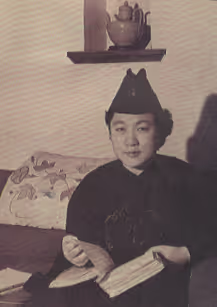
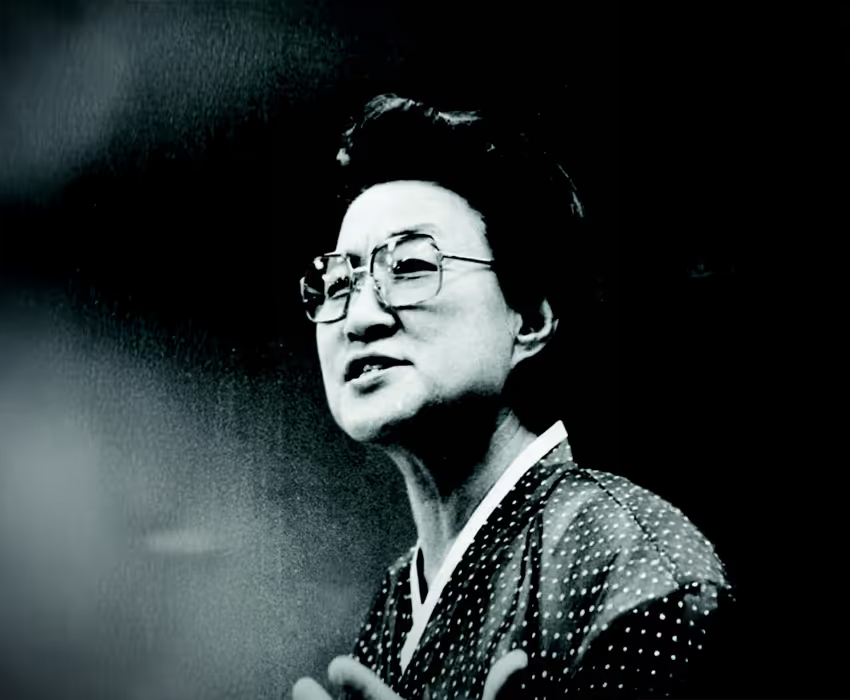


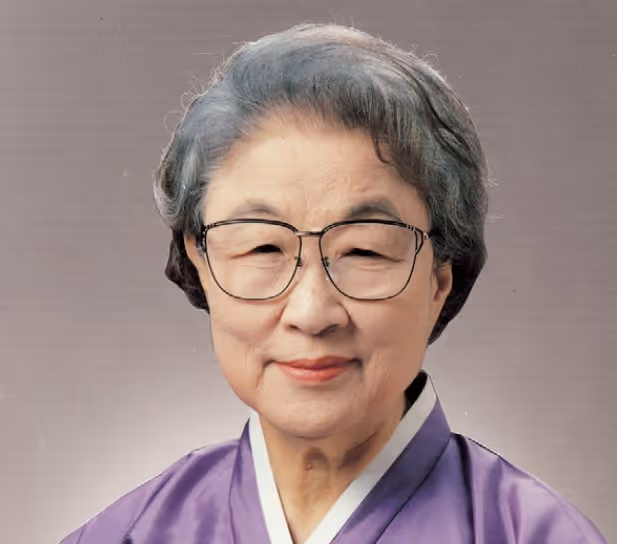
Dr. Lee Tai-young graduated as valedictorian from Ewha Women’s Junior College with a Bachelor’s Degree in Home Economics in 1936. In 1946, she became the first woman to attend Seoul National University’s Department of Law. Six years later, in 1952, she became the first woman to pass the bar exam at the 2nd Higher National Judicial Examination, but was denied a judgeship by then-President Rhee Syngman for being the wife of a prominent opposition party member. She then became the first female lawyer in the country. Without Dr. Lee—described as a woman of many “firsts”—who resisted male-biased laws and institutions as South Korea’s first female lawyer, many women would still be discriminated against by unjust legal systems to this day.
In 1956, Dr. Lee established the Women’s Legal Counseling Center (currently the Korea Legal Aid Center for Family Relations) to help women who were repressed under the abusive feudalistic convention of subjecting women to be inferior to men. By initiating legal aid activities to solve problems concerning women and the family in a legal and reasonable manner, she provided not only legal counseling, but also preparation of legal documents and litigation necessary for legal settlement of family matters at no cost, in addition to reconciliation and mediation for family matters. Moreover, in addition to her legal aid efforts, she also published casebooks of consultations and periodicals for legal enlightenment, along with social education projects as a part of a project to reform the public mind to prevent family problems.
As a prominent women’s rights activist in Korean history, Dr. Lee not only fought forwomen’s rights but also democracy. She joined the New Democratic Party in 1971 and toured the country with then presidential candidate Kim Dae-jung as his supporting speaker, and she passionately defended those arrested for resisting the dictatorship at no cost. She was divested of her lawyer’s license in 1977 for participating in the "3.1 Declaration of Democracy to Save Korea" but was reinstated in 1980. She defended former President Kim Dae-jung as a witness in the military court that tried him for conspiracy for insurrection. In 1987, at the age of 73, she led a street protest demanding constitutional amendment for democratization and direct election which induced the "6.29 Declaration" (Special declaration for Grand National Harmony and Progress Towards a Great Nation).
In 1963, Dr. Lee was appointed professor and Dean of the College of Law at Ewha Womans University, which at the time was on the verge of closing after ten consecutive years without a single student passing the National Bar Examination. By 1971, she had produced numerous Ph.D. graduates in law, political science, and economics, as well as many who passed the Bar Examination. In the beginning of 1964, she also pioneered clinical legal education in Korea by introducing it to students at Ewha and other universities, laying the foundation for today’s law school education.
In 1952, Dr. Lee worked to revise discriminatory clauses between men and women in the draft of the Civil Law, expanding gender equality in inheritance laws across extended families. She campaigned for revisions to Family Law to grant divorced women the right to property division and proposed the establishment of a family court specializing in domestic cases—the first such proposal in Korea. To improve the legal status of women, she tirelessly pursued lectures, public discussions, booklets, forums, leadership training, street campaigns, and public education. As a result of her persistent efforts, Family Law was revised three times—in 1958, 1977, and 1989. Finally, in March 2005, the Hoju system, a patriarchal household system allowing only direct male descendants to inherit the position of head of household, was abolished.


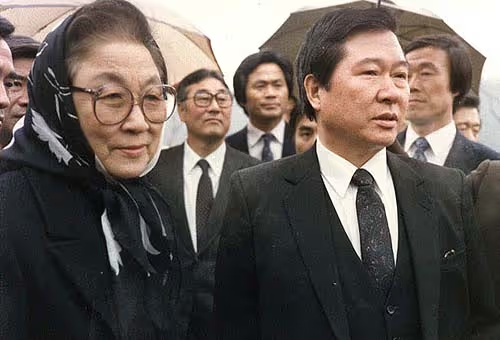
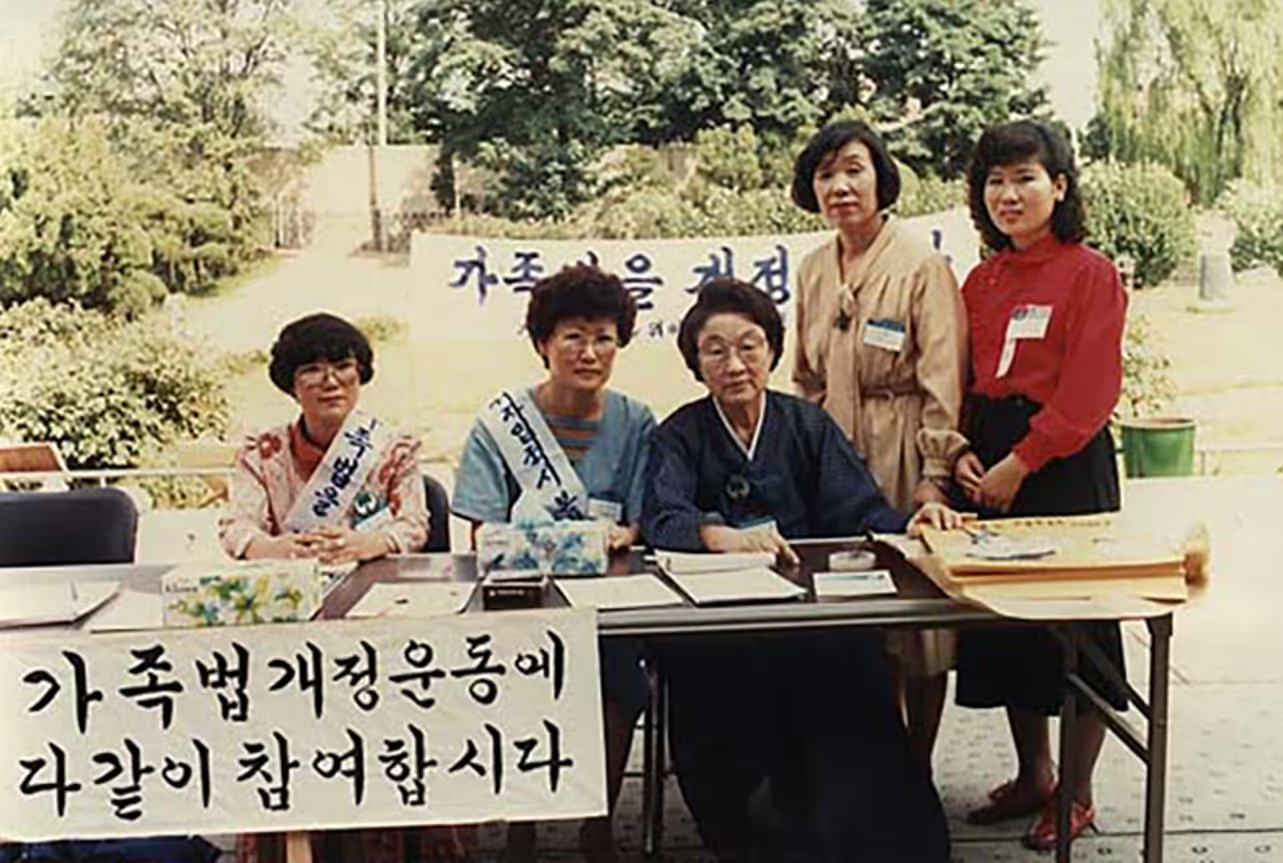
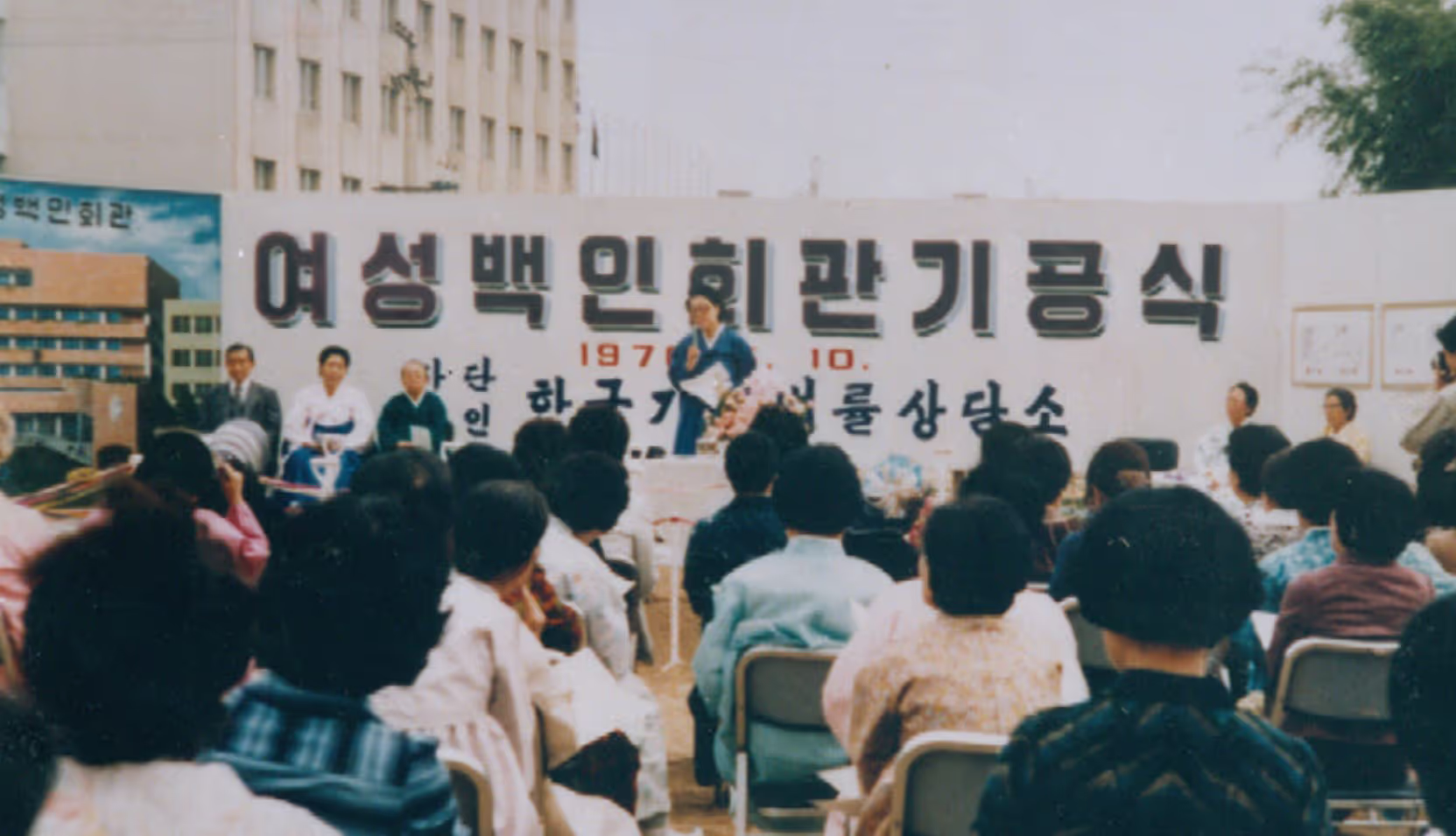

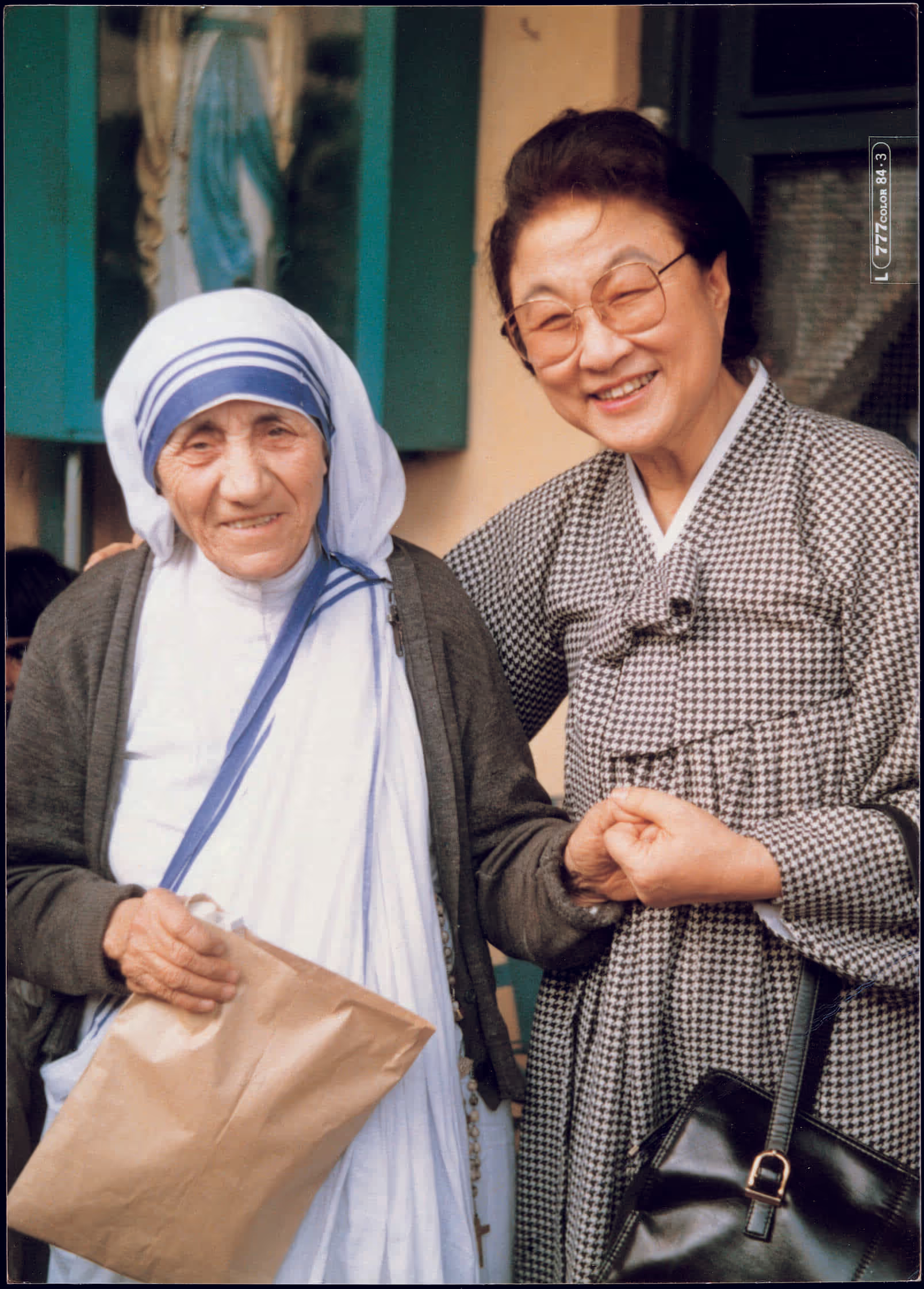
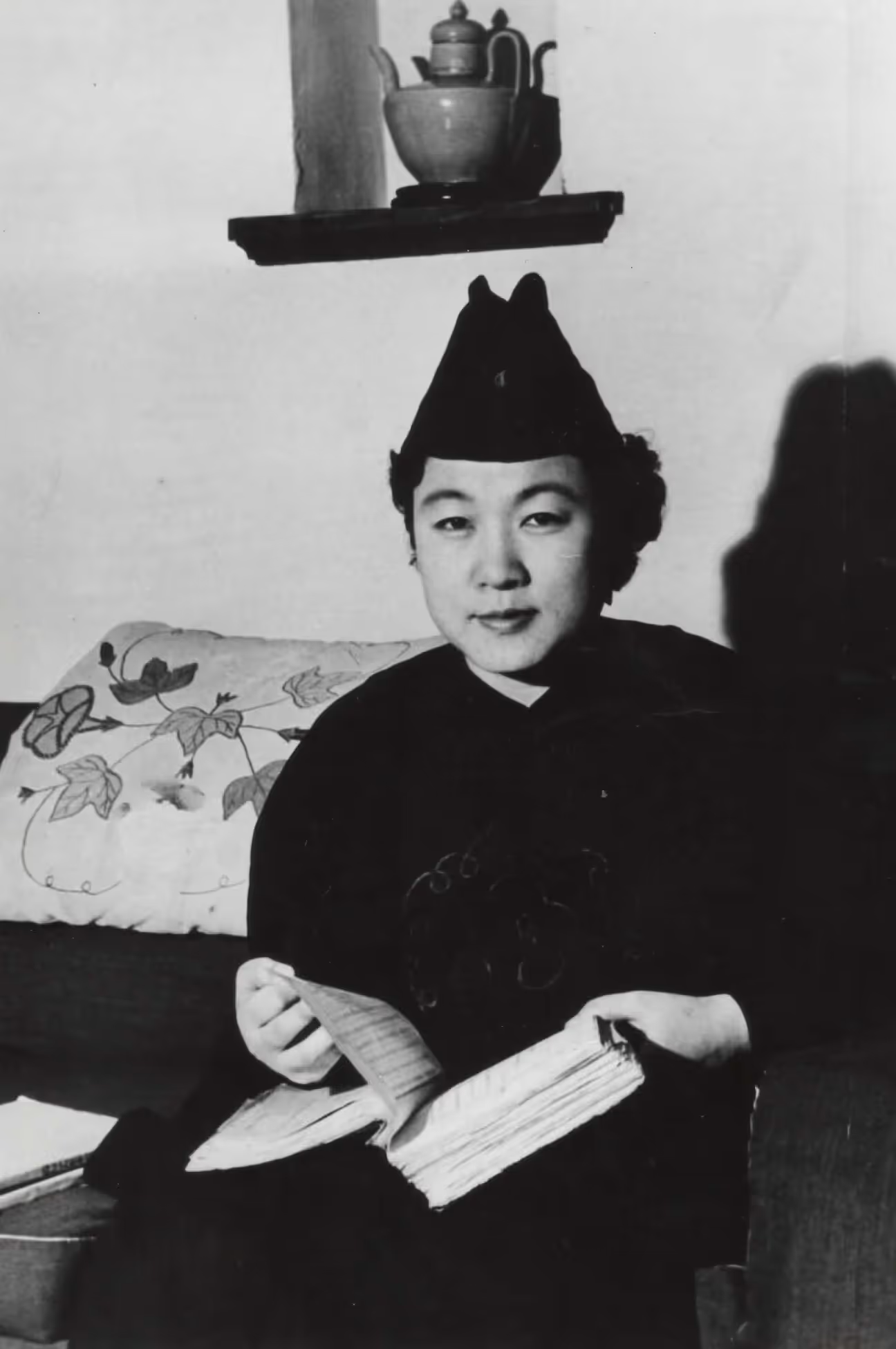
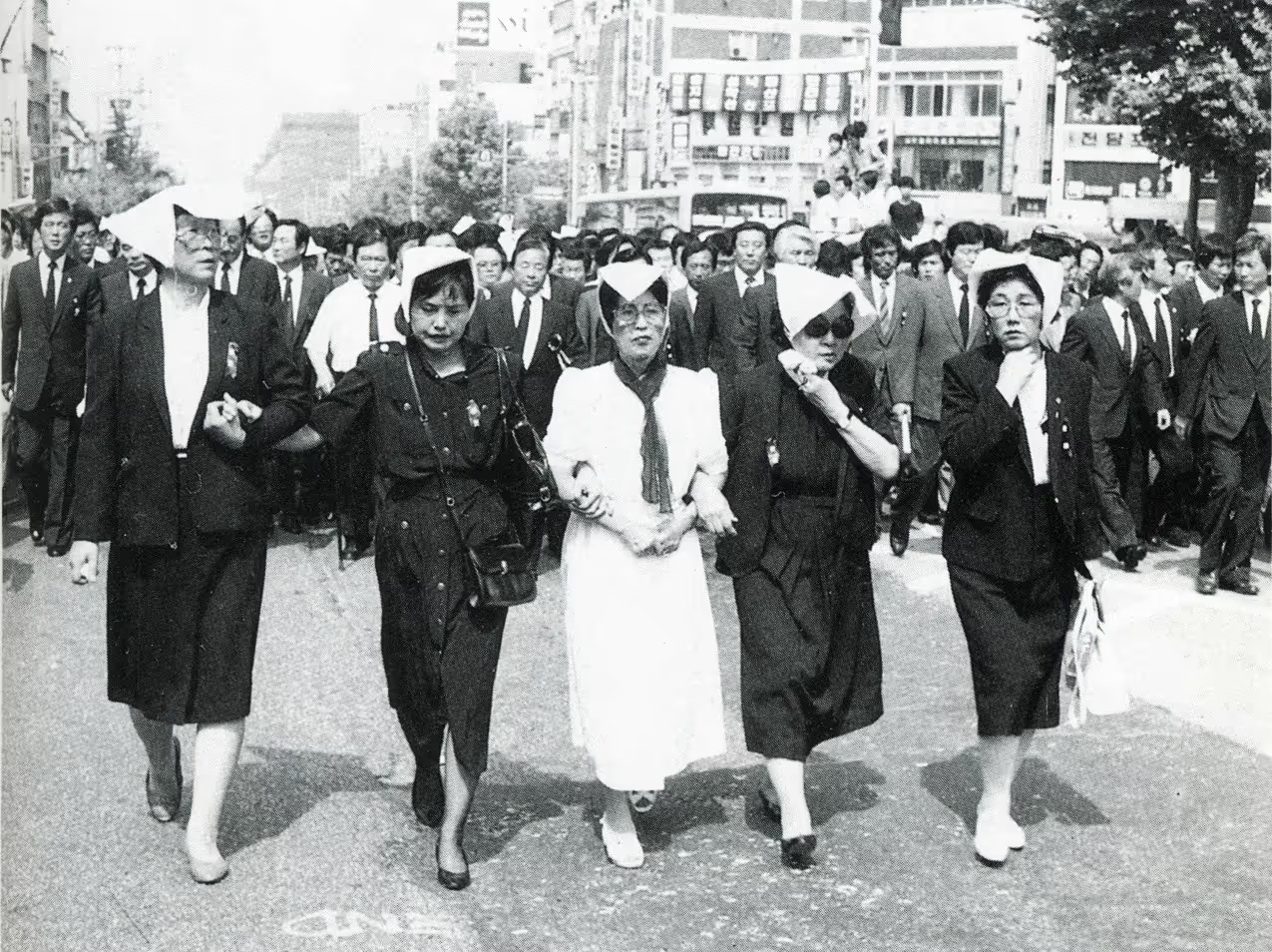

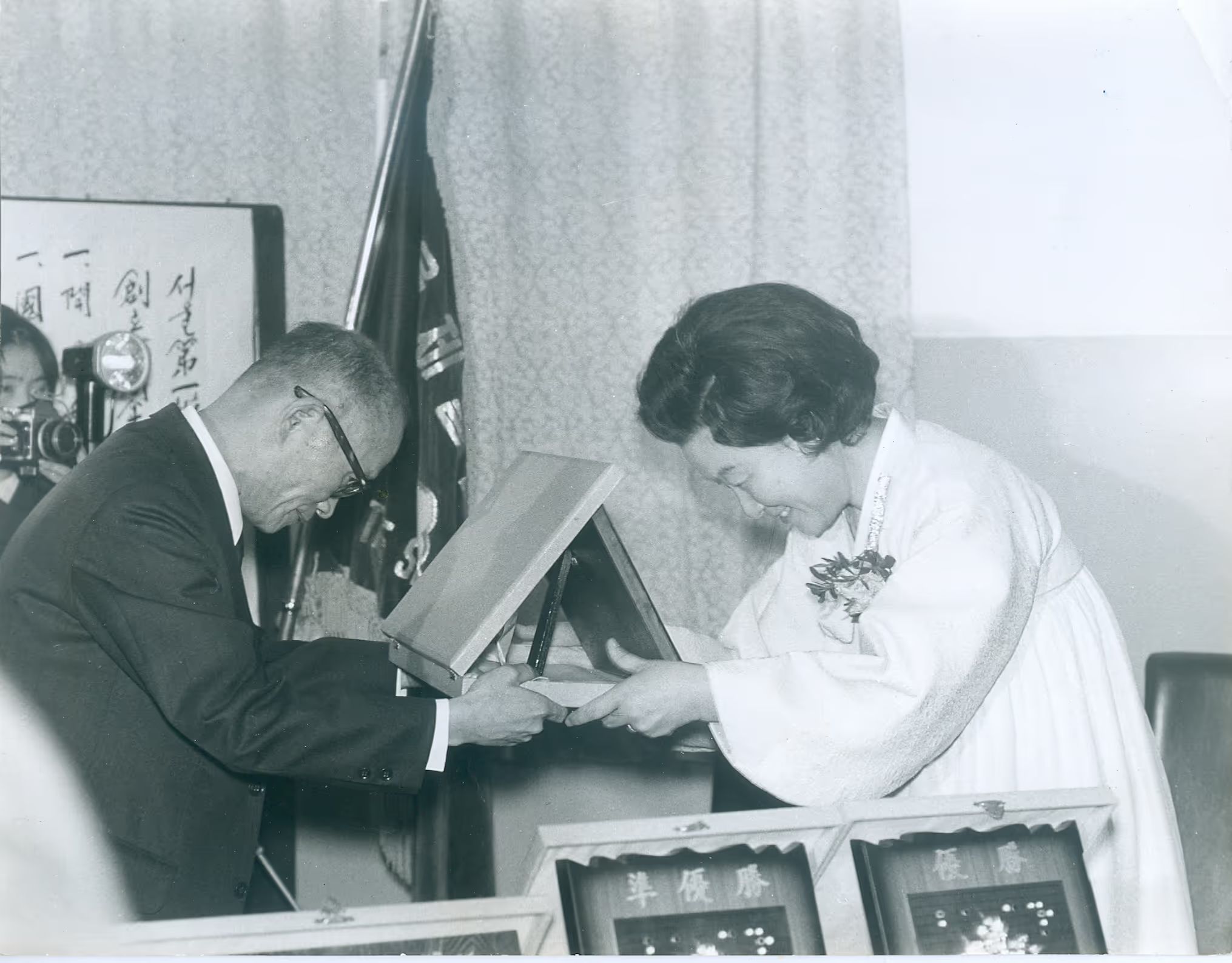
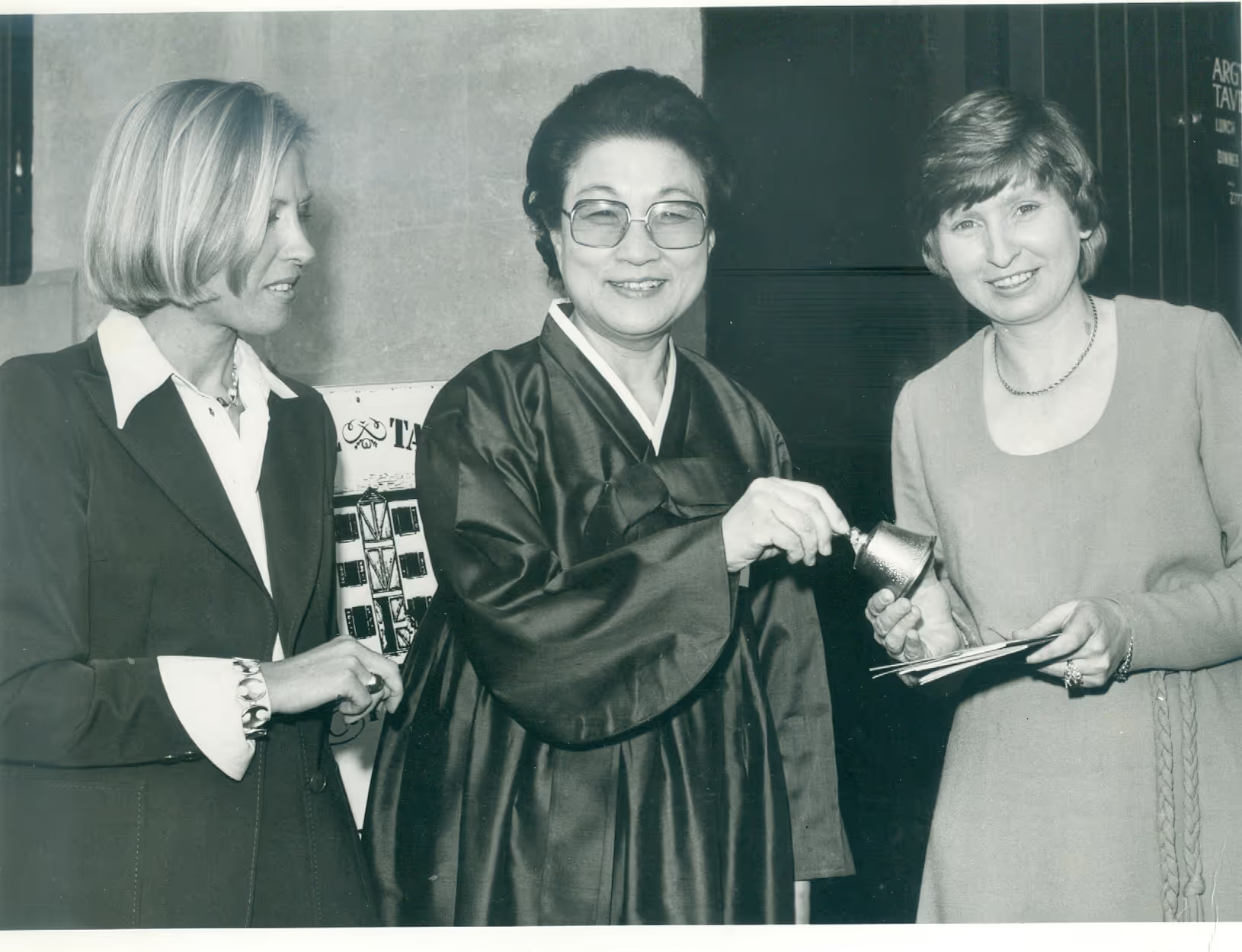

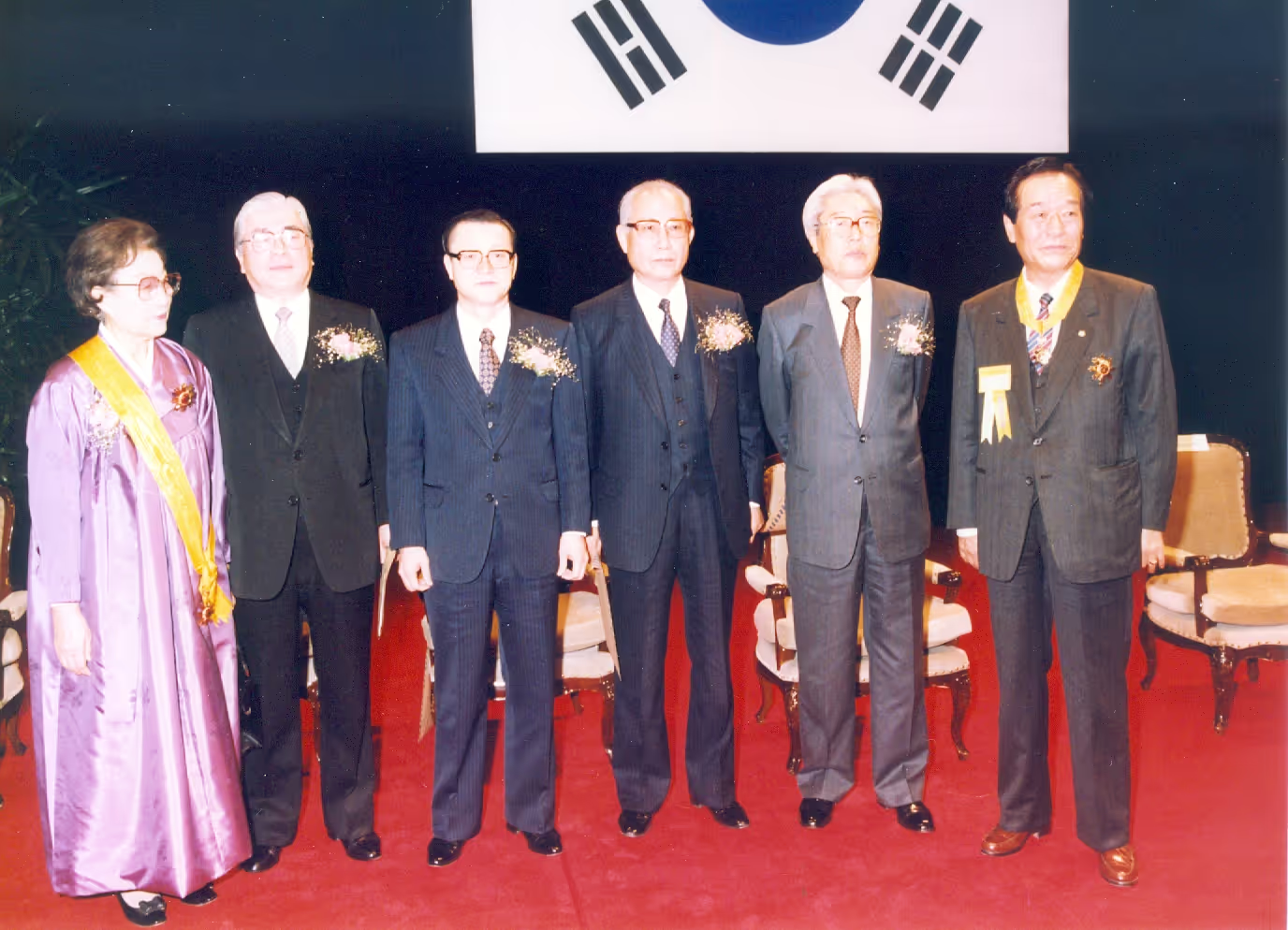
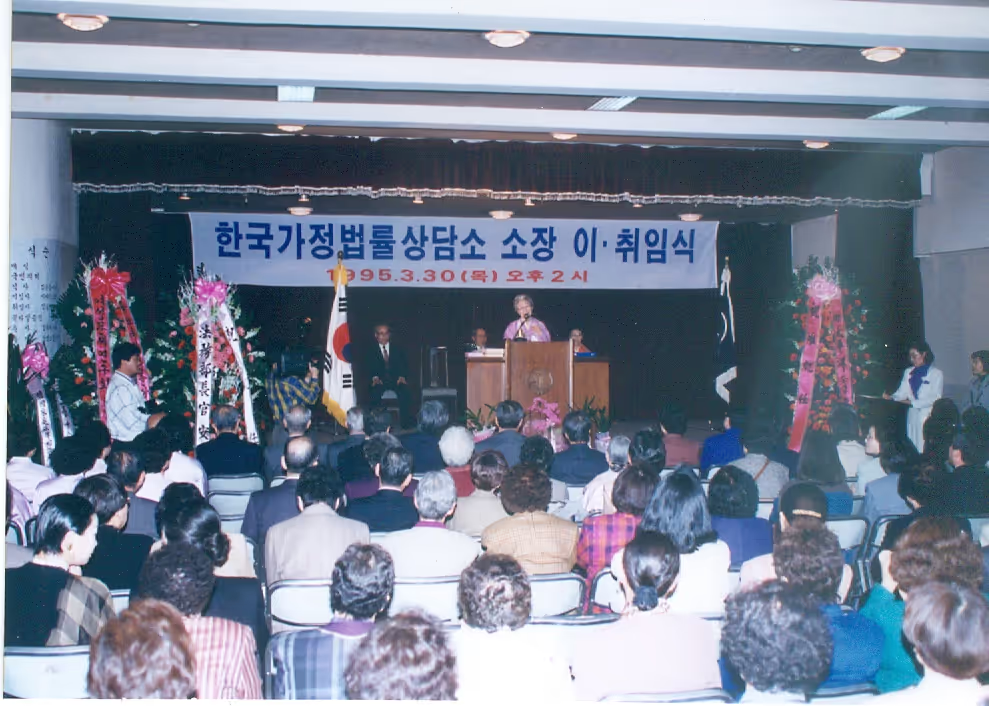
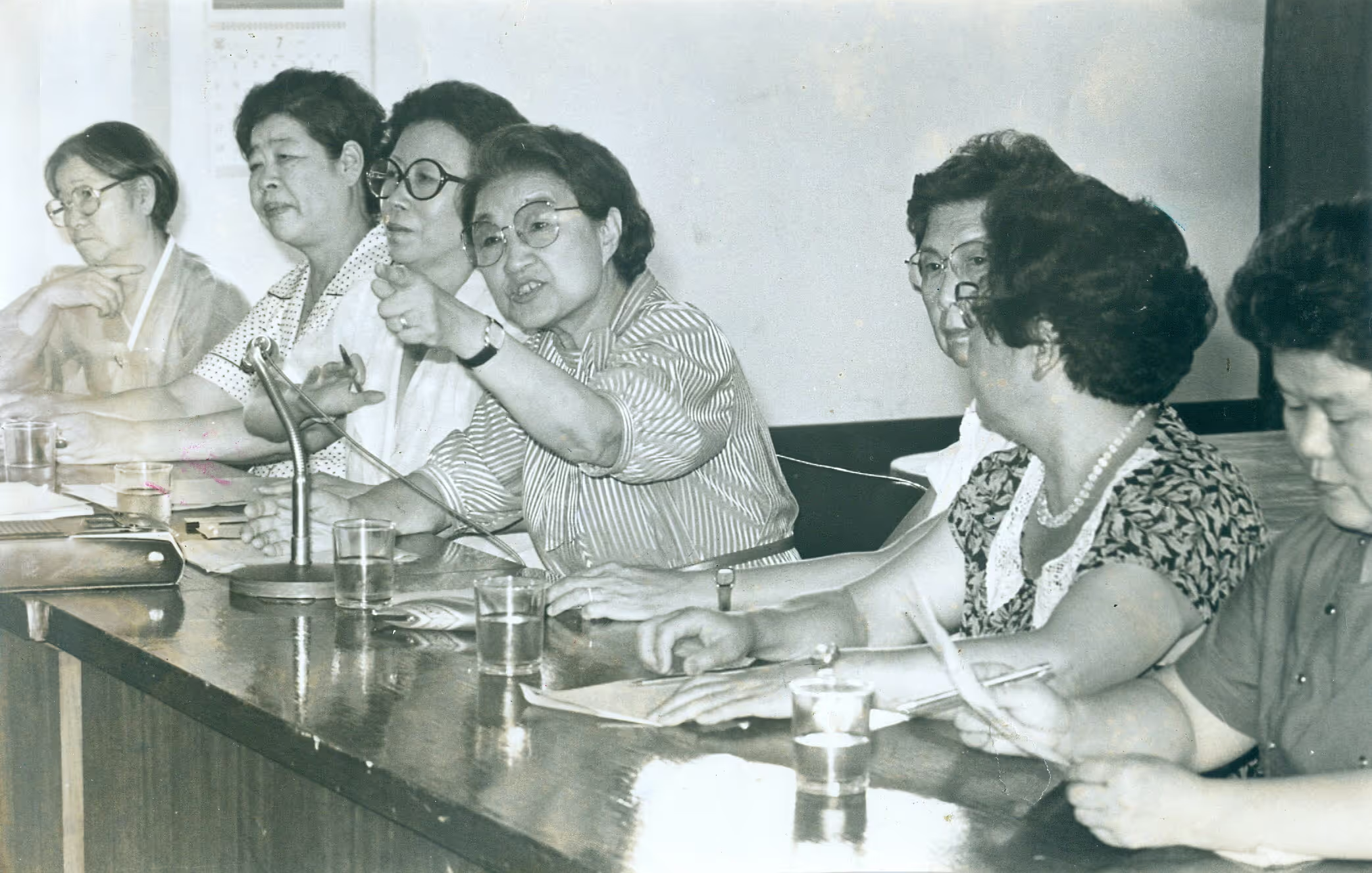

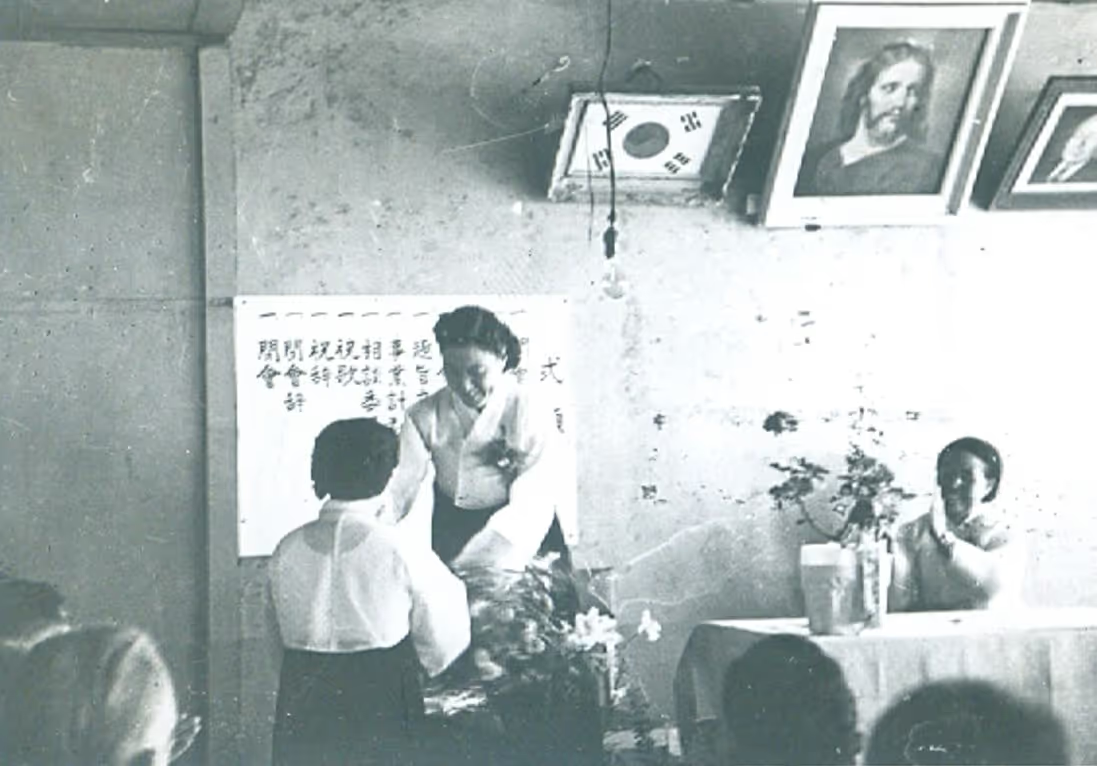
.avif)

